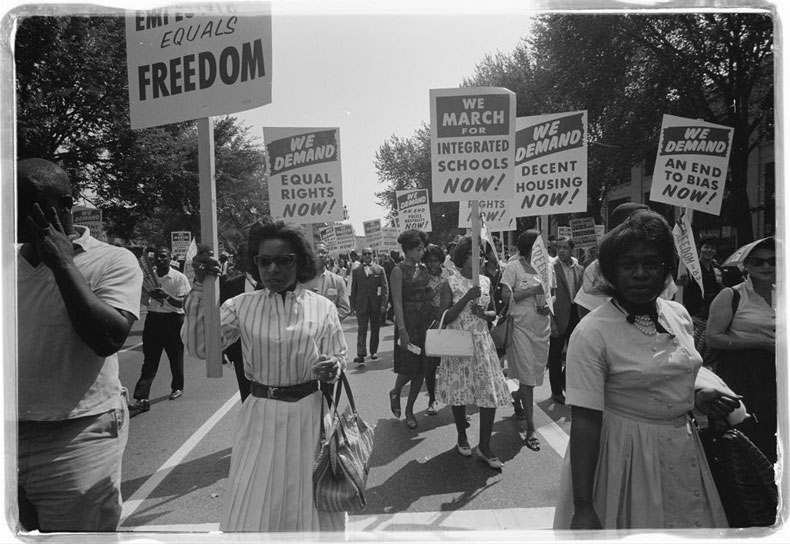Black History Month: A Call to Resist
This month marks our nation’s annual celebration of Black History Month, but “celebration” feels more challenging this year. We are only days removed from the release of the videos depicting the brutal murder of Tyre Nichols at the hands of Memphis police officers, hearkening us back to what we collectively experienced as a reckoning on race. That duality is a constant and painful reminder of the trauma that members of our communities carry with them on a daily basis.
How can we both celebrate their achievements and history and simultaneously mourn that we, and our institutions, are not where we should be?
The answer may lie in the theme of this year’s Black History Month, “Black Resistance,” an attribute Carter G. Woodson embodied as he fought to preserve Black history nearly 100 years ago.
Born in 1875 to illiterate parents who were formerly enslaved, Woodson was largely self-taught until he entered high school at the age of 20 and earned his diploma in less than two years. Woodson worked as a teacher and a school principal before obtaining a bachelor’s and a master’s degree. He later joined the faculty of Harvard University, eventually serving as Dean of the College of Arts and Sciences.
But despite these achievements, Woodson continued to face adversity. Barred from attending American Historical Association conferences despite being a dues-paying member, he remarked the contributions of Black Americans were “overlooked, ignored, and even suppressed by the writers of history textbooks and the teachers who use them.” This resistance to acknowledging Black history motivated Woodson to launch Negro History Week in the second week of February 1926 to coincide with the birthdays of Abraham Lincoln and Frederick Douglass. This week later expanded into the Black History Month we now observe.
Inspired by Woodson’s example of resistance, it is our hope that we in school communities nationwide can both celebrate Black History month and acknowledge the work that needs to be done. In this way, we are collectively resisting hopelessness, while reaching for full equality. May you also resist:
- The notion that you and your school community can’t make a difference,
- The thinking that we will never achieve racial and other forms of justice in our schools, and
- The urge to disengage from the fight for equity because of the recent politicizing of education topics related to people of color.
Moreover, we encourage families and school staff to resist avoiding conversations about race because they cause discomfort. For the past several months, PTHV’s staff, trainers, and close partners have embarked on our own journey of discovering what racial equity means for us and our work. We’ve had extensive training with the National Equity Project on how to create space for dialogue on equity in schools. We’ve formed a workgroup to examine ways to incorporate our learnings into our training—not to shift the focus away from the power of home visits—but to deepen our impact and better equip educators for effective family engagement, especially where it requires grappling with differences. We know that 79 percent of our nation’s educators are White, and because of shifting demographics, many, if not most of those educators, are serving in communities in which the BIPOC student population is fast growing or is the new majority.
We’ve also interviewed hundreds of educators to understand their approaches and challenges in this area. These brief, but illuminating, conversations have allowed educators to be vulnerable and sit with their discomfort, acknowledge truths about how our education system disadvantages students of color, and embrace being the change through meaningful relationships with all students and families. We heard things like:
- “I feel emotionally exhausted often by the conversations and have needed to step back from some and lean in to others.”
- “I am a Black teacher. Many of my students are Hispanic. It was amazing to see ‘real’ vs. what is portrayed on TV for both cultures.”
- “We fear retaliation could happen if staff push too hard.”
- “PTHV can create intentionality around trust. We have to get rid of the idea that trust and respect are granted to educators before they build it. If we can build relationships with families we can address institutional racism together.”
- “I felt black, non-immigrant families and white families avoided me and didn’t use me as a resource. Once I started visiting their homes, they learned my story, and that helped destroy the ‘ignorance wall.’ I feel like a friend or guest now.”
Will you join us in this month of action by reading, reflecting on, and sharing resources related to the role of family engagement in achieving racial equity in schools? Here are some conversation starters.
* Photo by Warren K. Leffler | Library of Congress

